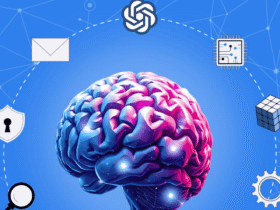Artificial intelligence is no longer science fiction or an overhyped catchphrase — it’s an actual, ever-evolving force that is reshaping industries globally. From self-driving cars to tailored medicine, AI is powering smarter systems and enabling companies to move faster, work more intelligently, and make better decisions. At the center of this transformation are AI engineers — the people who create and build smart algorithms, data pipelines, and machine learning architectures that drive these innovations.
With more and more organizations adopting AI into their functions, the demand for trained engineers is increasing. However, not all sectors are developing at an equal pace. Some industries are spending heavily, creating more employment and reshaping the job market in profound ways.
If you are a current or prospective AI worker, understanding where the most demand is will give you an strategic edge when career planning. Having an understanding of which industries are hiring most and why will assist you in steering your abilities into real applications and positioning yourself for long-term success.
Why the AI Hiring Boom Is Just Getting Started
A decade ago, companies experimented with AI in isolated use cases — letting a single function be automated or building a proof of concept. Today, AI is no longer just a technology; it’s an essential skill. Companies want engineers with the ability to design and scale systems that continuously learn, improve, and create value.
This is no longer the domain of Silicon Valley tech giants alone. Startups, companies, and even government agencies are deploying AI in meaningful ways. And as AI tools now become more available through cloud platforms and open-source environments, there is a growing need for engineers who can bridge experimentation and make real implementation happen.
From computer vision to natural language processing and predictive analytics, AI engineers are now a part of any organization’s digital agenda. The work is no longer niche — it’s mainstream, and it’s expanding rapidly.
Healthcare’s AI Revolution
One of the most exciting and fast-growing areas for AI is medicine. Research institutes and hospitals are using AI to detect illness earlier, improve diagnostic precision, and customize treatments. Algorithms are helping radiologists identify aberrations on scans, helping doctors assess risks, and helping pharmaceutical companies develop new medicines.
This is especially relevant in densely populated nations and diverse healthcare needs. In India, for example, startups are using machine learning to aid detection of diabetic retinopathy in rural patients, and predictive models are used by hospitals to manage patient load and efficient usage of resources.
The industry needs AI engineers who can deal with sensitive data, are aware of compliance demands, and come up with solutions that are technically strong as well as ethically strong. It’s a high-impact space that rewards for skill and foresight.
Finance and the Rise of Smart Systems
The financial sector has always been about data — and AI is now taking it to an entirely new level. Banks, insurance firms, and fintech firms are hiring AI engineers to build fraud detection models, automate underwriting, and fine-tune trading strategies.
What has altered in the recent past is scale. AI is being injected into customer service (through chatbots), investment platforms (through robo-advisors), and even credit scoring. As digital banking becomes widespread, especially in emerging markets, companies need engineers to build secure, real-time systems that handle humongous volumes of data.
AI banking needs a high level of knowledge algorithms, but at the same time, it also needs trust, transparency, and fairness. The models need to be explainable and non-biased — especially when they are taking decisions with respect to people’s money or giving credit.
The Tech Industry Can’t Hire Fast Enough
No wonder, then, that technology companies remain among the biggest recruiters of AI engineers. Be it large, established product firms or seed-stage startups, there is a constant demand for natural language processing experts, recommender system specialists, generative model builders, and autonomous decision-making experts.
SaaS companies use AI to customize user experiences. E-commerce companies use it to customize and understand customers. Online video sites build smarter content moderation tools, while game developers use it in procedural content generation and behavior simulation.
For developers who want to produce A-league work, technology remains a good sandbox. Remote work opportunities, the pace of innovation, and the capability to make an impact on products used by millions of people all conspire to make it an attractive backdrop.
Whether you’re focusing on deep learning frameworks or optimizing inference at scale, there are countless AI developer openings in this sector that match both early-career and senior talent levels. And as AI becomes core to even non-tech products, engineers here have a chance to build technologies that ripple across every other industry too.
Retail and Consumer Insights
Brands are investing in AI to learn more about customers, optimize inventory, and deliver more personalized experiences. From fashion recommendation engines to dynamic pricing engines and predictive supply chains, AI is helping brands engage customers in smarter and more compelling ways.
Both physical stores and online retailers use computer vision, NLP, and sentiment analysis to improve interaction and guide data-driven decisions. AI engineers in this sector need to demystify intricate consumer data into meaningful features and models that have a direct impact on business results in the real world.
This is also one of the more creative applications of AI — integrating user psychology, design sensibility, and analytics. Because customer experience is emerging as a major competitive driver, engineers who possess some mixture of technical competencies and product awareness are very sought after.
Manufacturing and Automation
AI is also pushing boundaries in manufacturing. Predictive maintenance, quality inspection, and process automation are all being transformed by intelligent systems. Sensors and IoT devices generate a stream of data — and AI engineers get to make sense of it in real-time.
Companies require smarter factories — not just automated ones. That is, they require AI engineers who can build models for anomaly detection, reducing energy usage, and helping in robotics systems in high demand.
As Industry 4.0 becomes increasingly real, even some traditional manufacturers are eager to get out in front of the trend — and are actively hiring AI talent that will fuel their makeover. Here, engineers frequently work alongside hardware teams, systems engineers, and operations experts to bring AI out of code and onto the manufacturing floor.
Final Thoughts
AI is reaching almost every industry, but some are clearly ahead of the pack when it comes to hiring. Healthcare, finance, technology, retail, and manufacturing are using AI to shape the future — and they need more than just coders. They need thinkers, builders, and solvers who know the distinctive challenges of their field.
For AI engineers, the times are wonderful for creating a stimulating career, which has profound impacts. Opportunities are many and demand is tremendous. Prospects of growing with their organization in stature are excellent.
If you’re ready to step into one of the most exciting roles of the decade, look beyond just job titles. Think about where your work will make a difference — and start shaping your path in the industries that are hiring AI talent like never before.
Related: Revolutionary AI Technology: Experience the Future of Background Removal

















Active Noon Media is the largest local to national digital media website that represents the voice of the entire nation.